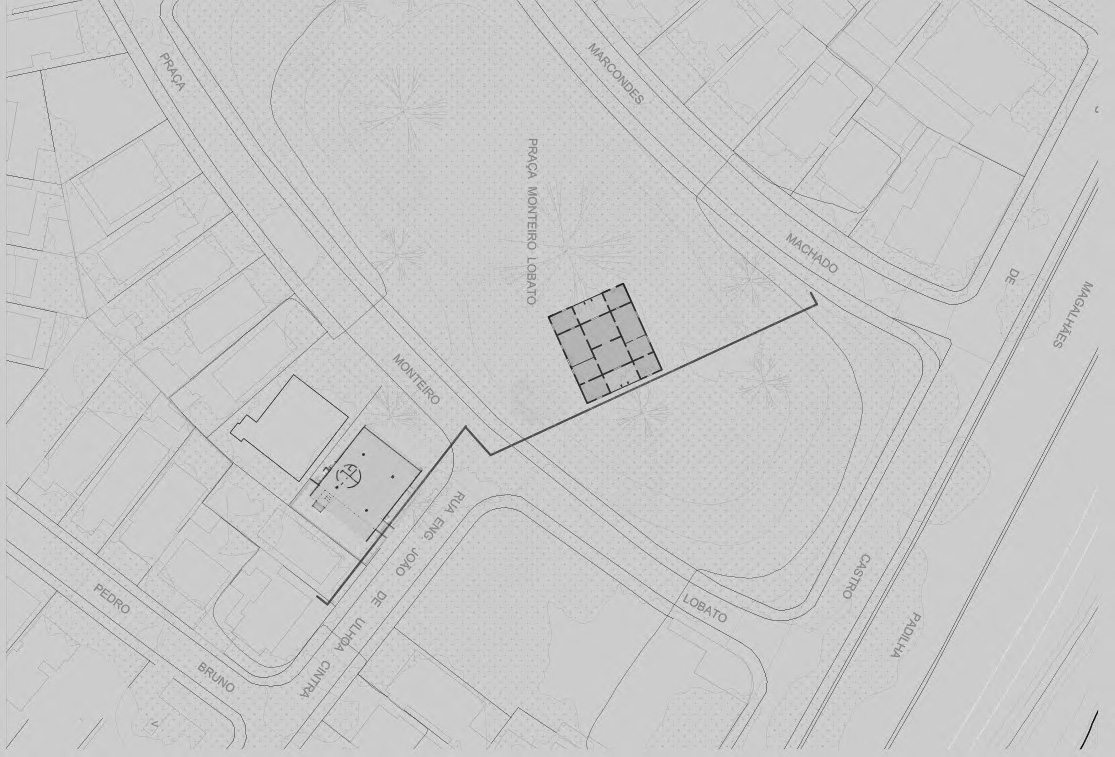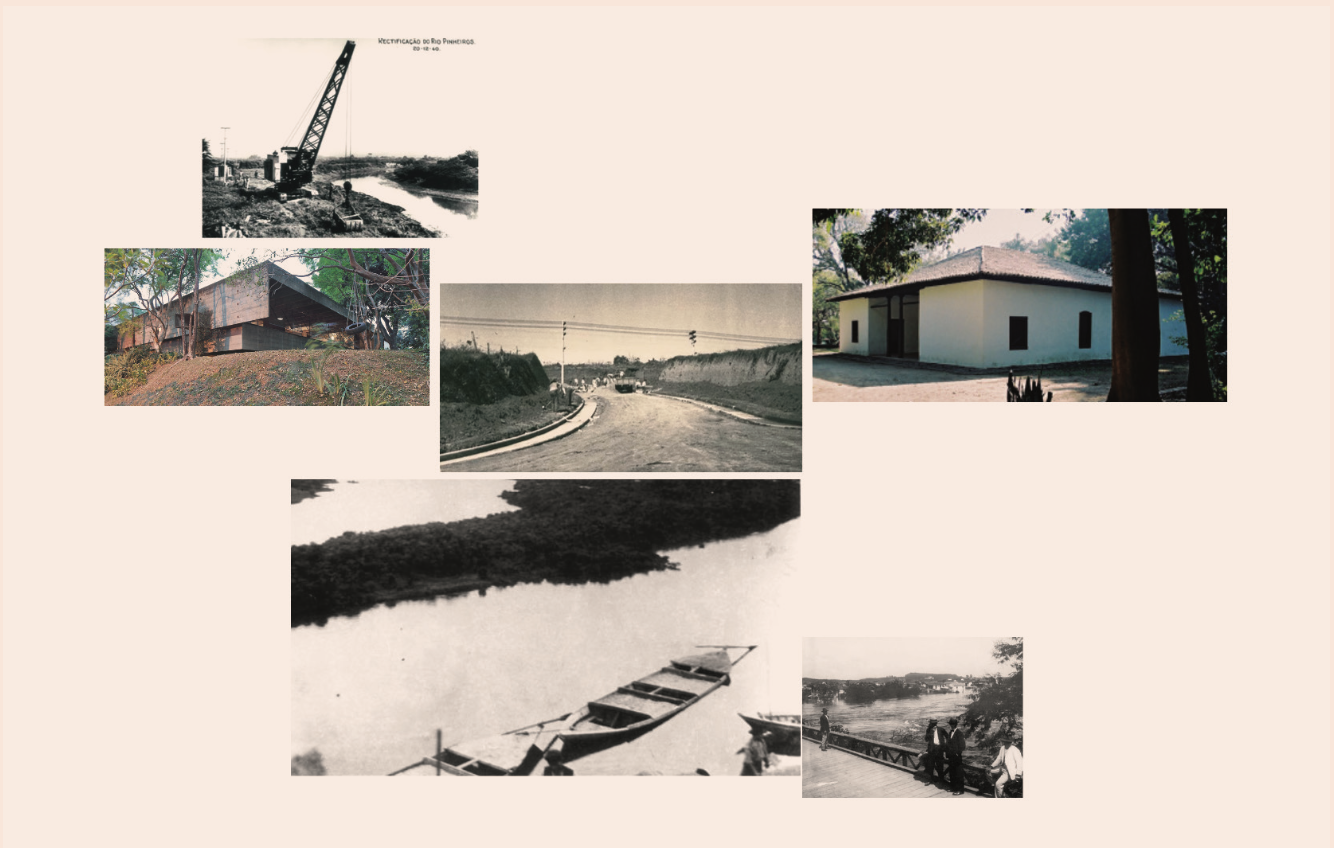on the two butantã houses and
how to inhabit pathways
research

beaten earth,
on the two butantã houses and how to inhabit pathways
developed for
Master of Arts in History and Theory of Arts and Architecture
at
Pontifícia Universidade Católica,
Rio de Janeiro
with support of
CAPES research fellowhsip
abstract
From the analysis of two neighbouring houses in the Butantã neighbourhood, in the outskirts of the metropolis of São Paulo, as a set - a Bandeirante house restored in 1954 by Sphan (National Historical and Artistic Heritage Service) and transformed into a museum as part of the celebrations of the IV centenary of the city, and the house that the architect Paulo Mendes da Rocha built for himself between 1964 and 1967 – the aim is to understand,
mainly through the material, constructive and tactile dimensions of architecture, how issues of continental scale may cross from one time to another; not by chance two fundamental moments in the establishment of national borders, from the Atlantic coast to the interior of the American continent. Looking simultaneously at these two iconic houses when considering the history of São Paulo’s architecture, built side by side and on the same level, it is possible to establish associations between the ideas of inhabiting that they represent, and, in their architecture, manifestations of the construction of a territory – visible not only in the two houses, but also in the common plane that traverses them. A beaten earth that carries expressions of the paths, the meanders, the topography transformed and recreated by human action; e(E)arth that was mined, excavated and turned over to fit somewhere in the interval between these two gestures; in between the two houses, Butantã.
thesis presented
with distinction
final jury
Master of Arts
History and Theory in Arts and Architecture
Pontificia Universidade Catolica,
Rio de Janeiro, RJ
CAPES scholar
Tutor
Ana Luiza Nobre
year
2022
for complete thesis
click here
thesis presented at
History(ies) of Art Seminar,
Porto, Portugal
2024
on the two butantã houses and how to inhabit pathways
developed for
Master of Arts in History and Theory of Arts and Architecture
at
Pontifícia Universidade Católica,
Rio de Janeiro
with support of
CAPES research fellowhsip
abstract
From the analysis of two neighbouring houses in the Butantã neighbourhood, in the outskirts of the metropolis of São Paulo, as a set - a Bandeirante house restored in 1954 by Sphan (National Historical and Artistic Heritage Service) and transformed into a museum as part of the celebrations of the IV centenary of the city, and the house that the architect Paulo Mendes da Rocha built for himself between 1964 and 1967 – the aim is to understand,
mainly through the material, constructive and tactile dimensions of architecture, how issues of continental scale may cross from one time to another; not by chance two fundamental moments in the establishment of national borders, from the Atlantic coast to the interior of the American continent. Looking simultaneously at these two iconic houses when considering the history of São Paulo’s architecture, built side by side and on the same level, it is possible to establish associations between the ideas of inhabiting that they represent, and, in their architecture, manifestations of the construction of a territory – visible not only in the two houses, but also in the common plane that traverses them. A beaten earth that carries expressions of the paths, the meanders, the topography transformed and recreated by human action; e(E)arth that was mined, excavated and turned over to fit somewhere in the interval between these two gestures; in between the two houses, Butantã.
thesis presented
with distinction
final jury
Master of Arts
History and Theory in Arts and Architecture
Pontificia Universidade Catolica,
Rio de Janeiro, RJ
CAPES scholar
Tutor
Ana Luiza Nobre
year
2022
for complete thesis
click here
thesis presented at
History(ies) of Art Seminar,
Porto, Portugal
2024





beaten earth, on the two butantã houses and
how to inhabit pathways
research+seminar
thesis presented at
Pontifícia Universidade Católica Rio de Janeiro